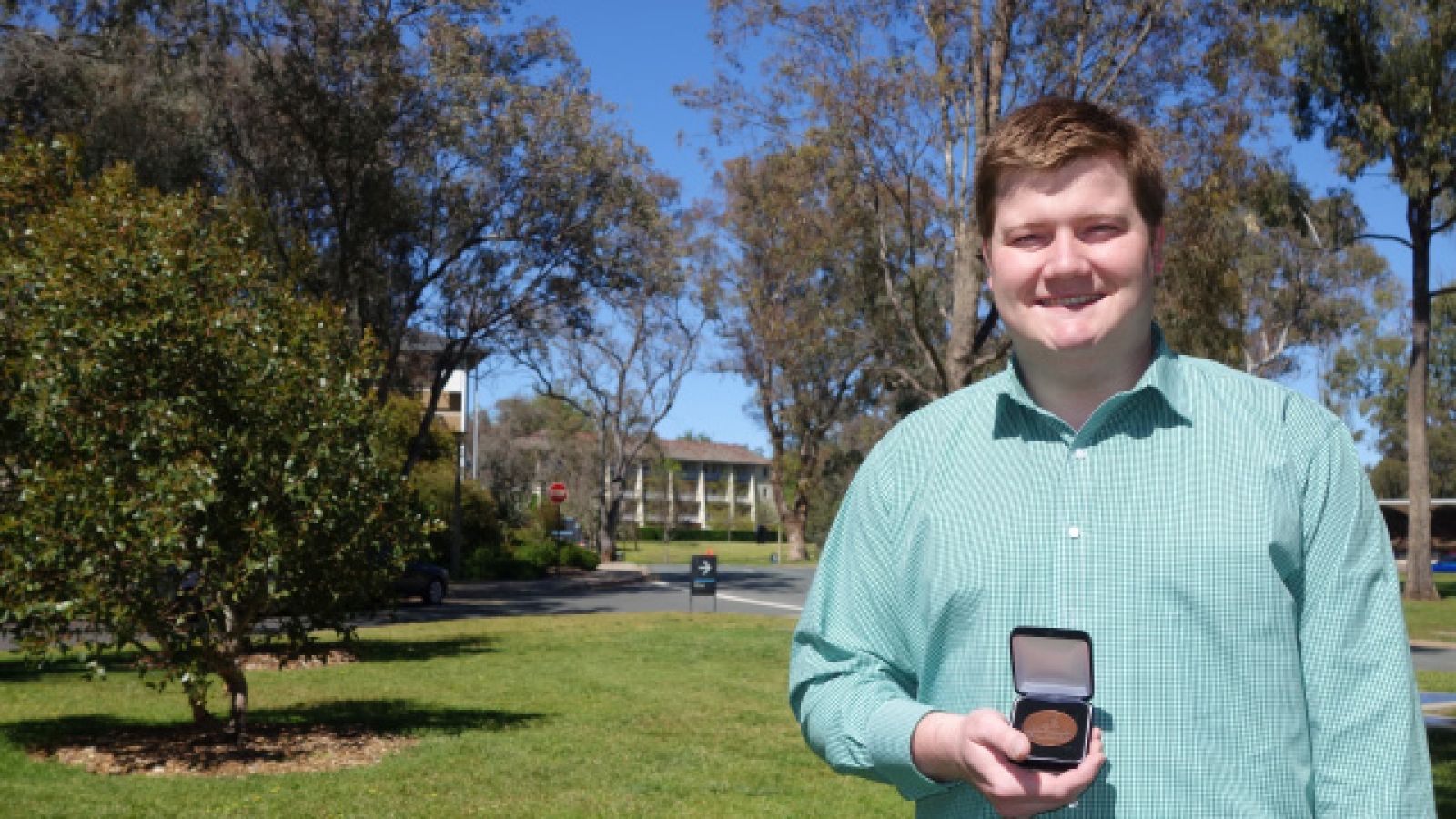ANU Arts Law student wins emerging historians medal

Daniel McKay, NSW History Council 2016 Max Kelly Medal winner, says history allows us to make better decisions.
An Australian National University student has won a major award from the NSW History Council for emerging young historians.
Daniel McKay, who’s in his final year of a Bachelor of Arts (Hons) / Bachelor of Law (Hons) degree, received the Max Kelly Medal for an essay about Australians’ contribution to the imperial federation movement.
“I forgot to tell my supervisor [Professor Angela Woollacott] about my application, so she was happy when I got the good news,” Daniel recalls.
“In my second year I found a book in the Chifley library about schemes for the federation of the British empire.
“I thought that sounded curious, and that writing about it could combine my interests in history and global politics.”
That essay was the second chapter of Daniel’s thesis, which focuses on the Imperial Federation League. Its members argued for Australia to stay in the British Empire but have some self-direction within it.
“The league feeds into arguments about Australian identity, like the idea of community and greater Britain and modern ideas about Brexit and other debates,” Daniel says.
Professor Woollacott says the ANU School of History is very proud of Daniel.
“The Council judged his essay the best essay of any undergraduate or postgraduate at a university,” she says.
“He was up against a large pool of other competitors and it’s a real honour that he won.
“It will also help him as he’s considering going on to postgraduate work in history and this will help future applications.”
Daniel has taken majors in history and political science. His hunger for history was stoked hearing family stories from his grandparents while growing up as the seventh generation of farmers on a property outside Bathurst, central western NSW.
Daniel spent more than a year researching his thesis and countless hours in libraries in Canberra, Melbourne and Sydney, and also the British Library in London.
The latter was a day trip from Dublin in late 2014 as Daniel had flown to Ireland to accept the overall and international winner in the historical studies category of the Undergraduate Awards.
Small class sizes are among the many elements of ANU that Daniel likes.
“People who write the books you’re reading are just down the hall,” he says.
“There are small class sizes and you get to choose your professors. During honours, I was fortunate to have the mentorship of leading scholars like Professor Woollacott to advise me on my research.”
He’s succinct when asked what he loves about the discipline in which he plans to do postgraduate study.
“History allows us to make better decisions. You can see what worked, what didn’t, and use that to predict how it might be in the future.
“It’s long-term thinking, as opposed to short-term thinking, which is important for government and policy decisions.”
Learn more about studying History as an undergraduate at ANU